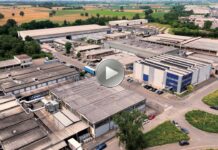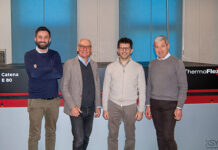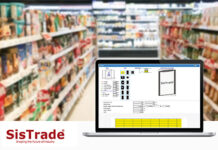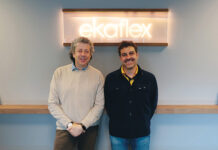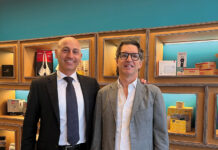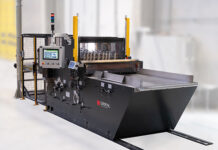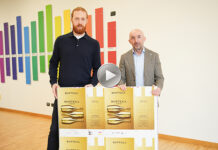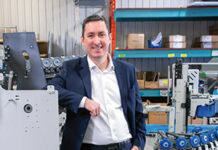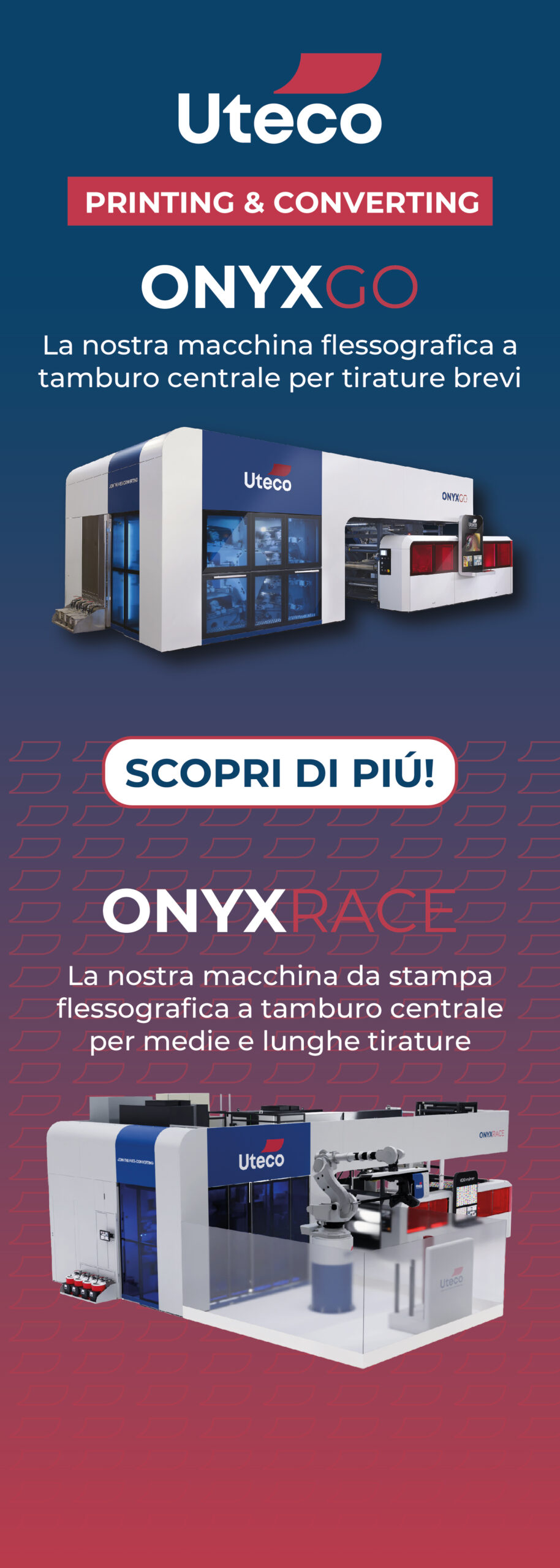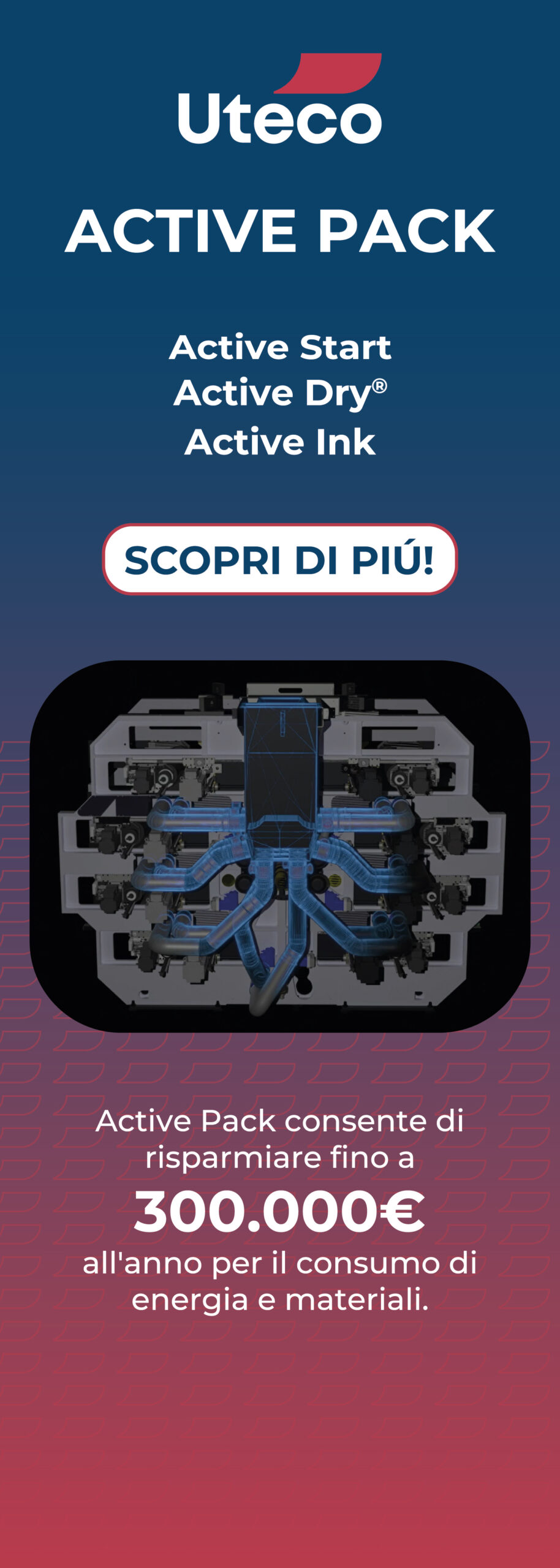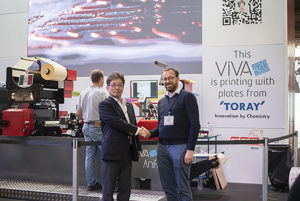 For more than two decades, waterless offset printing pioneer Toray and narrow web press manufacturer Codimag have sustained a deep partnership that has helped extend the environmental, quality and productivity advantages of waterless offset printing to a growing number of narrow web applications, including labels, cardboard, film, in-mould labeling, shrink sleeves, security printing and more. At Labelexpo Europe 2019, the two companies displayed the latest results of this collaboration, providing label printers/converters with proof that by migrating all or some of their production from flexography to waterless offset printing, they can substantially improve both quality and bottom line.
For more than two decades, waterless offset printing pioneer Toray and narrow web press manufacturer Codimag have sustained a deep partnership that has helped extend the environmental, quality and productivity advantages of waterless offset printing to a growing number of narrow web applications, including labels, cardboard, film, in-mould labeling, shrink sleeves, security printing and more. At Labelexpo Europe 2019, the two companies displayed the latest results of this collaboration, providing label printers/converters with proof that by migrating all or some of their production from flexography to waterless offset printing, they can substantially improve both quality and bottom line.
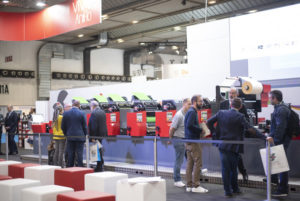 “In 1999, when we decided to move from letterpress to offset to improve the quality of our printing and reduce tooling costs,” says Benoit Demol, Codimag CEO, “we believed that waterless offset was the best solution for our market for two reasons: 1) it has all the advantages of offset in terms of quality and range of substrates that can be used; and 2) it doesn’t have the inconvenience of offset around maintaining ink/water balance. We obviously needed to work with Toray when we made the change because they are the leading provider of waterless offset plates, and they have helped us a great deal to develop our presses, including waterless offset applications and settings such as temperature control”.
“In 1999, when we decided to move from letterpress to offset to improve the quality of our printing and reduce tooling costs,” says Benoit Demol, Codimag CEO, “we believed that waterless offset was the best solution for our market for two reasons: 1) it has all the advantages of offset in terms of quality and range of substrates that can be used; and 2) it doesn’t have the inconvenience of offset around maintaining ink/water balance. We obviously needed to work with Toray when we made the change because they are the leading provider of waterless offset plates, and they have helped us a great deal to develop our presses, including waterless offset applications and settings such as temperature control”.
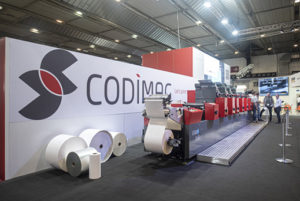 Both Toray and Codimag are pleased with the advances that have been enabled by the Codimag VIVA 420 press with Aniflo and Toray’s new IMPRIMA LJ waterless offset plates. “The VIVA 420 is a new generation of narrow web press,” Demol adds. “We have increased the press speed to 85 meters per minute, which is the equivalent of a flexo press with inline die cutting, we have improved web guiding, and we have reduced waste and set-up time even more than previous presses due to the combination of Aniflo, which we introduced in 2007, and an improved web motion system. Now you can change over jobs in as little as five minutes with less than 30 meters of waste. In addition, waterless offset plates are much less costly than flexo plates”.
Both Toray and Codimag are pleased with the advances that have been enabled by the Codimag VIVA 420 press with Aniflo and Toray’s new IMPRIMA LJ waterless offset plates. “The VIVA 420 is a new generation of narrow web press,” Demol adds. “We have increased the press speed to 85 meters per minute, which is the equivalent of a flexo press with inline die cutting, we have improved web guiding, and we have reduced waste and set-up time even more than previous presses due to the combination of Aniflo, which we introduced in 2007, and an improved web motion system. Now you can change over jobs in as little as five minutes with less than 30 meters of waste. In addition, waterless offset plates are much less costly than flexo plates”.
Demol points out that the new Toray IMPRIMA LJ waterless offset plates are not only chemistry-free for increased environmental sustainability, but they are much more durable as well. “This is essential” he says, “because when you are printing longer runs as we are with the VIVA 420, you need plates that are of higher durability. They are a perfect match for all aspects of the label market”.
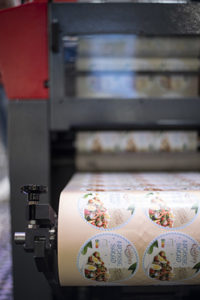 “Although we do have partnerships with other press manufacturers,” Mitsunori Hayashi, Director at Toray, explains, “Codimag supports us in the label market. We share the goal of being able to print high-value products in an eco-friendly way, and we believe that it creates new business opportunities and also draws volume from the less sustainable flexo process. It makes a great deal of sense to work together as we not only continue to grow the waterless offset label market in Europe, but also in China and South America”.
“Although we do have partnerships with other press manufacturers,” Mitsunori Hayashi, Director at Toray, explains, “Codimag supports us in the label market. We share the goal of being able to print high-value products in an eco-friendly way, and we believe that it creates new business opportunities and also draws volume from the less sustainable flexo process. It makes a great deal of sense to work together as we not only continue to grow the waterless offset label market in Europe, but also in China and South America”.
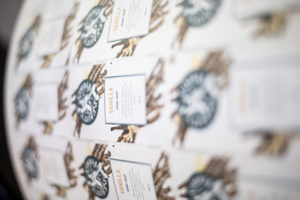 Hayashi reports that even though the IMPRIMA LJ plates have only been on the market for a few months, the company is receiving high praise from customers for their chemistry-free nature, and also for the higher resolution and more durability they offer. “In many cases, the customers are looking for more projects with shorter runs, but they are also demanding higher quality. Plus, environmental regulations around the world are becoming more stringent, creating even more opportunity for waterless offset and eco-friendly presses like the VIVA 420”.
Hayashi reports that even though the IMPRIMA LJ plates have only been on the market for a few months, the company is receiving high praise from customers for their chemistry-free nature, and also for the higher resolution and more durability they offer. “In many cases, the customers are looking for more projects with shorter runs, but they are also demanding higher quality. Plus, environmental regulations around the world are becoming more stringent, creating even more opportunity for waterless offset and eco-friendly presses like the VIVA 420”.
Both companies continue to work on more improvements and new solutions moving forward. “As we move toward drupa 2020,” Hayashi states, “our collaboration will be even tighter and more important”.
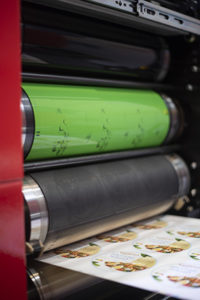 Demol concludes, “drupa 2020 will be another good opportunity to collaborate again with Toray and educate label printers about why they should switch to waterless offset – for the same reasons why waterless offset was chosen in other markets including newspapers, plastic cards, and security applications: waterless offset can print on any substrate with very high quality and productivity, minimal waste and a significantly smaller environmental footprint. drupa 2020 will be an excellent venue to bring the latest developments and engage printers of all types by sharing with them the advantages and opportunities that waterless offset printing brings”.
Demol concludes, “drupa 2020 will be another good opportunity to collaborate again with Toray and educate label printers about why they should switch to waterless offset – for the same reasons why waterless offset was chosen in other markets including newspapers, plastic cards, and security applications: waterless offset can print on any substrate with very high quality and productivity, minimal waste and a significantly smaller environmental footprint. drupa 2020 will be an excellent venue to bring the latest developments and engage printers of all types by sharing with them the advantages and opportunities that waterless offset printing brings”.




